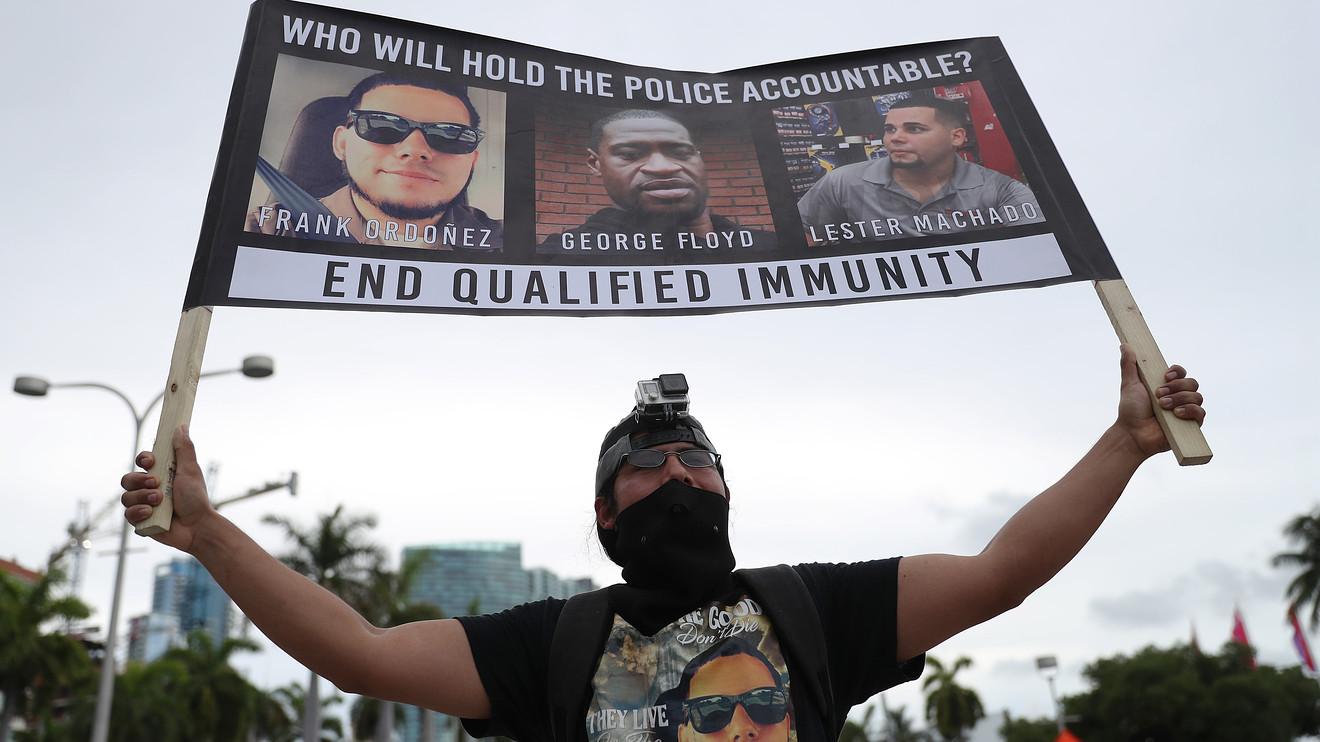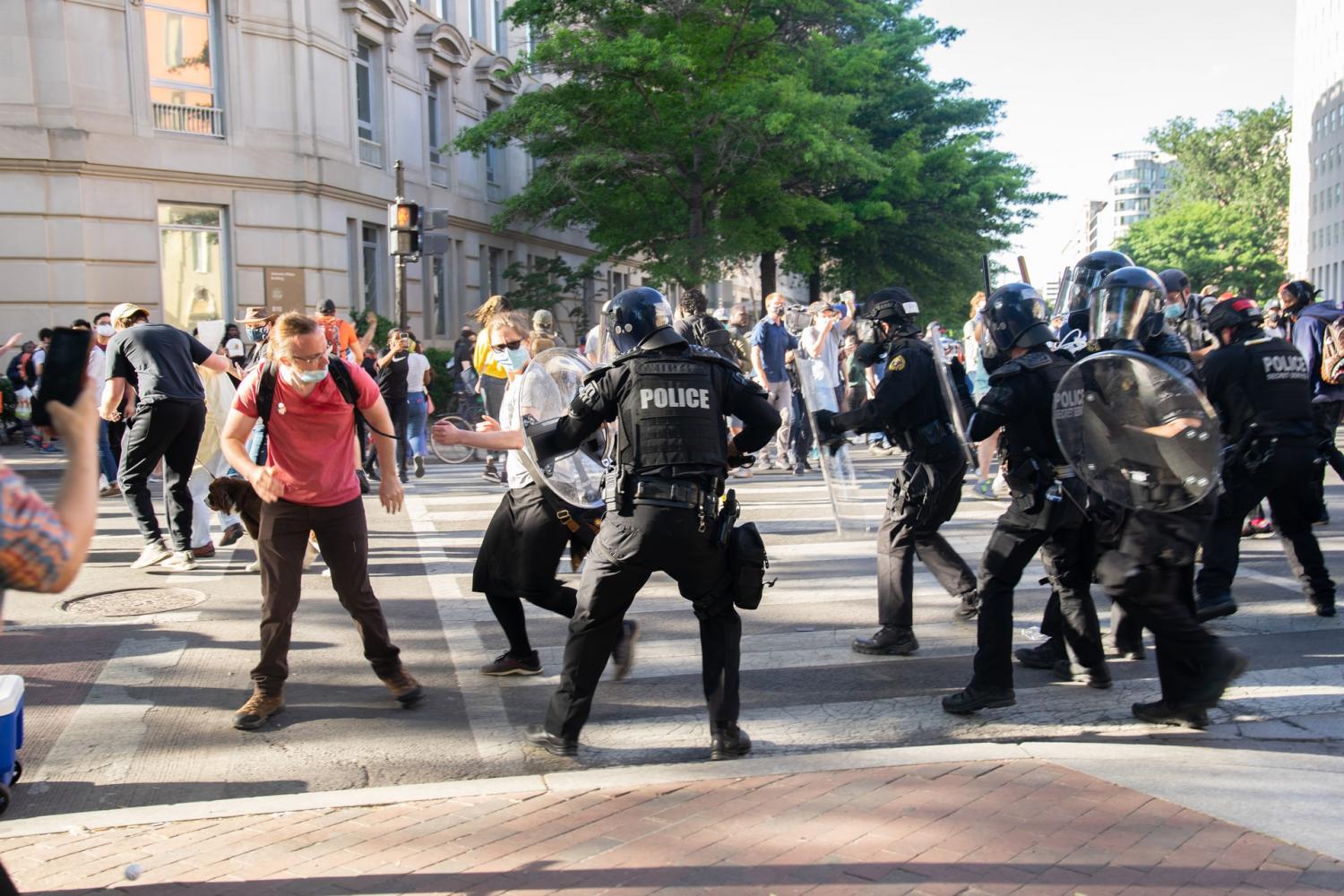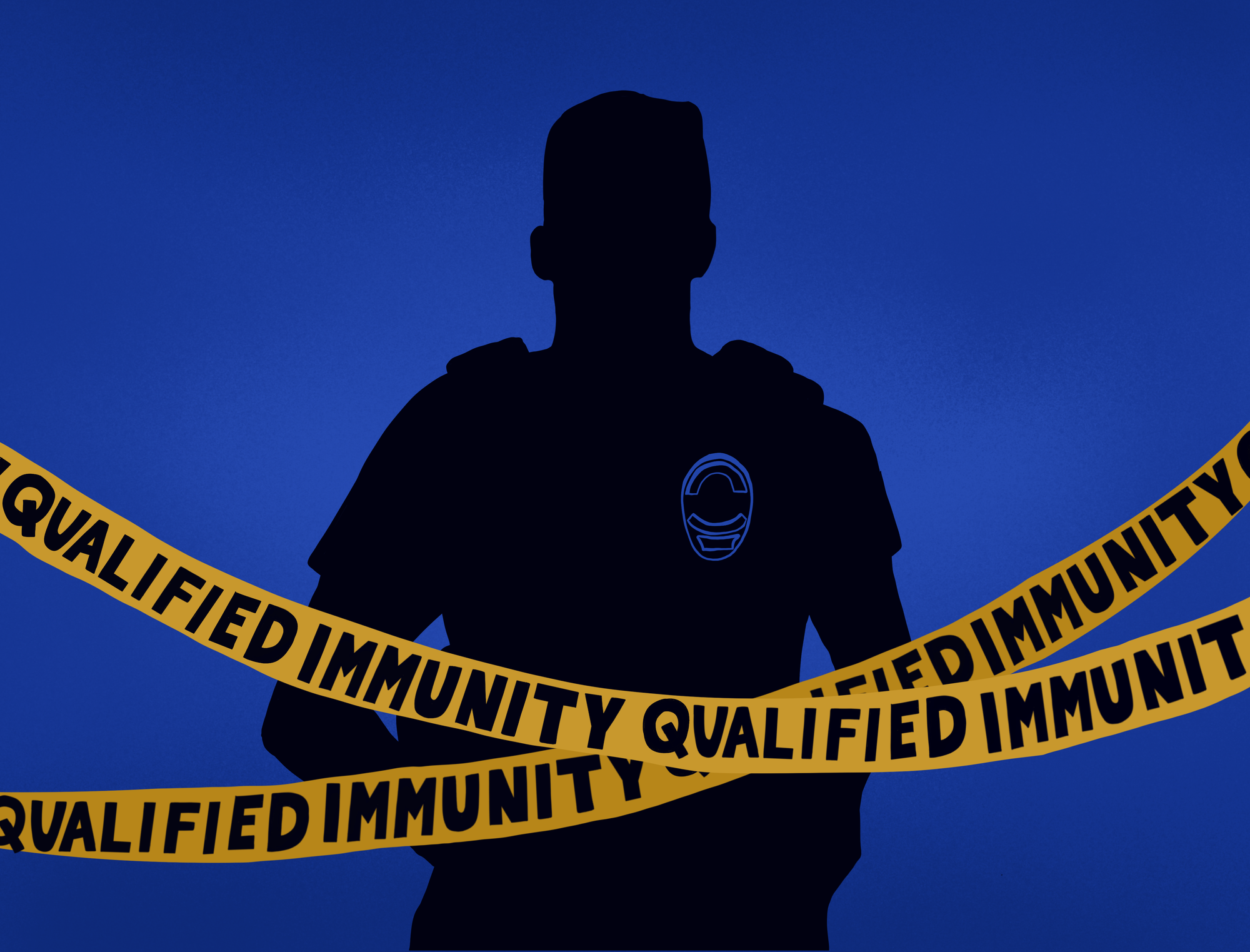In the continuing aftermath of George Floyd’s death at the hands of Minnesota police, qualified immunity has come to the forefront. By protecting police officers from liability, even when they violate people’s constitutional rights, this doctrine has become the cornerstone of near‐zero accountability policy for law enforcement.
What is Qualified Immunity?
Qualified immunity provides protection from civil lawsuits for law enforcement officers and other public officials. It attempts to balance the need to allow public officials to do their jobs with the need to hold bad actors accountable. Proponents of qualified immunity argue that without a liability shield, public officials and law enforcement officers would be constantly sued and second-guessed in courts. Critics say the doctrine has led to law enforcement officers being able to violate the rights of citizens, particularly disenfranchised citizens, without repercussion.
Qualified immunity is not the result of a law passed by Congress, nor is it written in the Constitution. It is instead a legal doctrine refined by the U.S. Supreme Court. First outlined in 1967, it has since been greatly expanded. Because qualified immunity is largely a creation of the courts that is not based on the U.S. Constitution, Congress could pass a law amending, affirming or revoking qualified immunity at any time. It has so far declined to do so. However, both lawmakers and current Supreme Court justices have considered amending or revoking qualified immunity as it currently stands.

How Qualified Immunity Works
Qualified immunity is not the same as absolute immunity. In other words, there are circumstances in which a public official can be held accountable for constitutional violations in civil court. However, in the Supreme Court’s own words, qualified immunity is an officer-friendly doctrine that protects “all but the plainly incompetent or those who knowingly violate the law.”
Courts employ a two-part test to determine whether qualified immunity applies. If the answer to both questions is yes, then the public official does not get immunity.
- Did the officer violate a Constitutional right?
- Did the officer know that their actions violated a “clearly established right”?
The next issue is to determine when a right is “clearly established.” Under the current doctrine, a right is clearly established when the Supreme Court or the relevant federal appeals court has already treated the conduct as unconstitutional, or where a public official’s conduct is “obviously unlawful”.
In 2009, the U.S. Supreme Court told lower courts it could skip the first part of the test at its discretion. Many courts now do so.
The result is that judges now look to past court cases to see whether there is a similar set of facts on record that would put the officer on notice that their actions violated the “clearly established” statutory or constitutional rights of another. The result is that the facts of a situation alleging police misconduct are highly relevant to when qualified immunity applies.
Applying Qualified Immunity
The Supreme Court has told lower courts to waive qualified immunity in cases that are very similar. It is not enough to show that a previous case denied an officer qualified immunity for broadly similar circumstances or actions. Instead, the facts must be “sufficiently clear” that a reasonable officer would understand that they are violating a constitutional or statutory right.
Picking just one example of thousands, the Eleventh Circuit Court of Appeals has distinguished between an officer firing at a dog surrounded by children, hitting and injuring a child, and an officer firing at a truck, instead hitting a passenger. In both cases the officer fired at a target for questionable reasons, resulting in injury to the accidentally hit victim. However, the Eleventh Circuit said the two were dissimilar enough that the officer who shot the child was given qualified immunity, whereas a previous court found that the officer who fired at the truck did not get qualified immunity.
The Benefits of Qualified Immunity
There are several arguments made to continue the doctrine of qualified immunity as it currently exists, including:
Officers and public officials need qualified immunity to carry out their jobs. Public officials, and particularly police officers, perform vital tasks that may require split-second decisions in stressful circumstances. Taking away qualified immunity could lead to officers being hesitant to act when it is most needed.
Removing qualified immunity could open up public officials and police to unwarranted lawsuits, in which judges and juries could second-guess split-second decisions and lead to significant costs for cities, police officers, and other public officials.
Officers do not have absolute immunity, and they can be held liable when they violate a clearly established constitutional right.
The narrow interpretation of clearly established precedent is appropriate. Officers should not be forced to apply an abstract right under the Constitution to specific circumstances in split-second decisions. Officers cannot be expected to be legal scholars or think through legal arguments when attempting to make an arrest.
Officers must have room to make mistakes or have moments of bad judgment without worrying about being sued.

The Arguments Against Qualified Immunity
Several arguments against qualified immunity as it currently stands include:
Liability is necessary to hold officers accountable for excessive force. As it stands officers are free to maliciously violate the Fourth Amendment and other Constitutional rights of citizens without any cost to themselves, provided some obscure court case hasn’t already dealt with almost the exact same situation.
The fear of rampant lawsuits against police are overblown. Many municipalities indemnify their officers, meaning the city would pay for any settlement, not the officers themselves.
The current doctrine as applied today in courts leads to hair-splitting and it is often impossible for plaintiffs to meet the burden.
The doctrine is applied inconsistently and can greatly depend on the judge or judges involved in the case. For example, one judge has argued that “a court can almost always manufacture a factual distinction” when determining whether a previous precedent precludes an officer from getting qualified immunity.
What Will Happen to Qualified Immunity?
There has long been a discussion of ending or significantly amending the qualified immunity doctrine. Congress has introduced legislation to end qualified immunity, and Supreme Court justices of vastly different judicial philosophies have also endorsed revisiting police officers’ liability shield. For now, however, it remains the doctrine of the courts that plaintiffs bringing a claim must first show that the public official’s actions were very similar to a previous case in which qualified immunity was waived.

